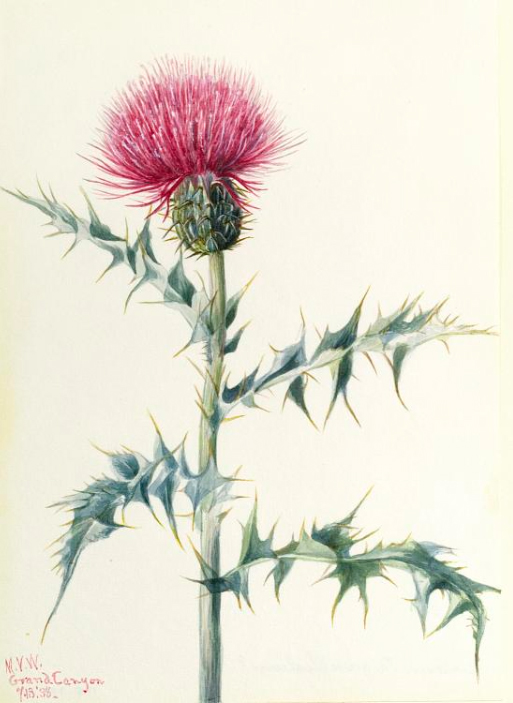Clover-Top and Thistle-Down
By Eugene Field
Annotations by Maggie Kelly/JB

Smithsonian American Art Museum and its Renwick Gallery, Washington, D.C.
Clover-top sighed when the wind sang sweet, Dropping the thistle-down at her feet; [1] “Oh, dear me, never a day Can I roam at my will, but ever, alway, In this tiresome meadow must ever stay!” Thistle-down floated, then sunk into rest, Only to rise at the breezes' behest, Hither and yon, on the wings of the air, Tired little sprite, so dainty and fair, “Oh, to just stop,” she sighed, “anywhere.” Honey-bees swarmed to thistle and clover, Sweet little toiling ones, over and over A work-a-day song they cheerily sing: “Look up, dear hearts, and what the days bring, Bless God for it all—yes—everything!”
Field, Eugene. “Clover-top And Thistle-down,” in A little book of tribune verse: a number of hitherto uncollected poems, grave and gay, Ed. Joseph G. Brown, 40. Grosset & Dunlap, 1901.
[1] Clover is a common, diverse species of plant, with the most common types being white clover and red clover. These plants grow freely, often in pastures. Thistle is a flowering plant covered in sharp prickles, often with purple flowers.
Contexts
Both the clover and the thistle are flowers full of symbolic meaning. The clover is often associated with its leaves rather than its flower, with the rare four-leaf clover symbolizing luck. The thistle, the national flower of Scotland, is shrouded in legend: the story goes that in 1250 A.D., Scotland was saved from the conquests of Norway when one of the Norse soldiers stepped on some thistle during a sneak attack and yelped in pain, awakening the Scottish soldiers.
Definitions from Oxford English Dictionary:
alway: Now chiefly archaic and regional. After the Middle English period alway becomes increasingly less common in standard English, being supplanted in all senses by always adv. By the 19th cent. the word survives mainly in literary and regional uses.
workaday: Of, relating to, or associated with a workday or its activities; (hence) routine, ordinary, humdrum; not special, unusual, or interesting in any way.
Resources for Further Study
- The full text of A Little Book of Tribune Verse
- For more information about the poet Eugene Field, visit the Denver Library’s biographical page about him.
- Eugene Field’s boyhood home in St. Louis is open to the public as a museum.